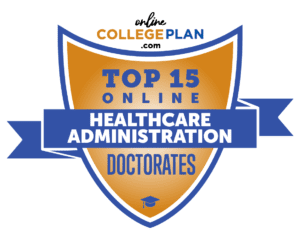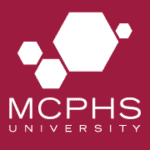Doctor of Science in Healthcare Leadership
- Location: Birmingham, AL
- Number of Graduate Students: 7,768
- Student to Faculty Ratio: 19 to 1
- Degrees Offered: One but less than two years certificate, Two but less than 4 years certificate, Bachelor’s degree, Postbaccalaureate certificate, Master’s degree, Post-master’s certificate, Doctor’s degree – research/scholarship, Doctor’s degree – professional practice
 The University of Alabama at Birmingham is one of three institutions in the University of Alabama System. UAB places a high value on research and is an R1 research institution. The School has one of the largest academic medical centers in America. The UAB Health System trains many men and women in neurology, surgery, radiology, anesthesiology and more.
The University of Alabama at Birmingham is one of three institutions in the University of Alabama System. UAB places a high value on research and is an R1 research institution. The School has one of the largest academic medical centers in America. The UAB Health System trains many men and women in neurology, surgery, radiology, anesthesiology and more.
The DSc at UAB is a hybrid program featuring distance learning and three eight-day intensive on-campus sessions per year. Designed for experienced healthcare leaders seeking to advance to in senior-level management positions while continuing work, DSc students are interested in continuing a practice-focused career, as opposed to the academic career sought by most Ph.D. students.
The program takes about three years. The first two years include courses such as Strategic Management Theory and Research, Health Economics & Insurance, and Applied Multivariate Statistics for Health Administration. The third year is intense. You travel internationally with your cohort, complete a comprehensive exam, and the spend the year dedicated to your dissertation and defense.
The program is effective and respected with 100 percent of the graduates rating it as ‘excellent.’ Consideration for the program requires a minimum of five years of senior management experience.
Will an online Doctorate in Healthcare Administration degree provide me with the skills I need to advance my career?
 Doctorate in Healthcare Administration degrees requires you to learn advanced leadership skills and knowledge. The outcomes of a Healthcare Administration program are numerous. They include the ability to communicate effectively, use evidence-based research methods and problem-solving strategies, prioritize strategic initiatives, model ethical and professional leadership, analyze health care organizations and issues, and evaluate and decide effective business strategies.
Doctorate in Healthcare Administration degrees requires you to learn advanced leadership skills and knowledge. The outcomes of a Healthcare Administration program are numerous. They include the ability to communicate effectively, use evidence-based research methods and problem-solving strategies, prioritize strategic initiatives, model ethical and professional leadership, analyze health care organizations and issues, and evaluate and decide effective business strategies.
These outcomes are accomplished through a core curriculum, electives, concentration/specialization courses (if applicable), and a dissertation. The dissertation requires students to delve into a specific challenge and compile a project-based solution. Through this project alone, you will research a relevant issue in the healthcare industry and offer solutions. Besides these, there are often comprehensive exams and practicums that are required.
Lastly, most of the online degrees require a few on-campus visits. These are vital for professional collaboration, expert guidance for research or other elements of your program, and networking. Because the healthcare industry is changing at a rapid rate, hospitals have an increasing need for individuals who are trained with the latest business knowledge, practical expertise, and an innovative spirit. A Doctorate in Healthcare Administration will provide these desirable characteristics. Graduates can be assured that the skills and knowledge gained through their PhD program will propel them to the top of their organization.
What is the curriculum for an online Doctorate in Healthcare Administration?
 The goal of graduate healthcare administration programs is the same: to acquaint students with the knowledge required of experts in the industry. Individual programs may differ, but the goal remains constant. Most programs will require courses in Marketing and Communications in Healthcare. These courses cover marketing, communications, and public relations principles, with a specific application to healthcare administration. Health literacy promotion, health services marketing, and ethical practice are usually included as well.
The goal of graduate healthcare administration programs is the same: to acquaint students with the knowledge required of experts in the industry. Individual programs may differ, but the goal remains constant. Most programs will require courses in Marketing and Communications in Healthcare. These courses cover marketing, communications, and public relations principles, with a specific application to healthcare administration. Health literacy promotion, health services marketing, and ethical practice are usually included as well.
Another set of required courses are Leadership in Public Healthcare. These will cover leadership theory, descriptive and prescriptive systems, and public health leadership principles. Most programs have a course that deals with Governance for Healthcare Leaders. Students will examine policy, law, advocacy, and ethical obligations of leaders of healthcare organizations. This is the course where students have the opportunity to approach hypothetical and real-world situations from economic, political, and sociological perspectives.
Advanced Healthcare Analytics involves the analysis of data-driven healthcare management. Students refine database skills including extraction, transformation, and analysis within corporate data warehouses. This is different from Healthcare Informatics which involves issues surrounding health information resources at the institutional level. There are also various forms of IT classes involved, along with a dissertation/research capstone project.
What are the advantages of earning my doctorate/Ph.D. online?
 The largest and most obvious advantage of earning your Ph.D. online is the flexibility it provides. Students can continue working a full-time job while going to school. Because most online doctorate in healthcare administration programs assume their students are working full-time, they adjust the program accordingly. Online coursework is completed at the student’s pace when time allows, while face-to-face seminars are limited to a few days throughout the course of the program. Some schools arrange for residencies to be completed in kid-friendly locales to accommodate parents.
The largest and most obvious advantage of earning your Ph.D. online is the flexibility it provides. Students can continue working a full-time job while going to school. Because most online doctorate in healthcare administration programs assume their students are working full-time, they adjust the program accordingly. Online coursework is completed at the student’s pace when time allows, while face-to-face seminars are limited to a few days throughout the course of the program. Some schools arrange for residencies to be completed in kid-friendly locales to accommodate parents.
Along with flexible scheduling, some online degrees award credits for professional credentials or prior work experience, shortening the length of the program. This is especially beneficial for the professional who has years of experience in the field, they don’t have to repeat information they have already learned first hand. Keep in mind that just because the program is offered online, most of the resources of the college campus are available. They include extensive student support programs including online mentoring, advising, and study groups.
Another advantage for the working adult is that because they have completed their degree online, they don’t have to look for a job after completing the program. Often, a raise or promotion is available through their current employer.
What accreditation is required for an online Doctorate in Healthcare Administration?
 Most colleges offer accredited Ph.D. programs. This is one of the most important things to look for when searching for a school. In order to achieve accreditation, academic programs have undergone a rigorous examination by a neutral third party of their curriculum and admissions procedures. Once they have passed, students can rest assured that reasonable academic and admissions standards can be expected at these schools.
Most colleges offer accredited Ph.D. programs. This is one of the most important things to look for when searching for a school. In order to achieve accreditation, academic programs have undergone a rigorous examination by a neutral third party of their curriculum and admissions procedures. Once they have passed, students can rest assured that reasonable academic and admissions standards can be expected at these schools.
Accreditation may be granted on the national, regional, or program level, or any combination of all three. National accrediting bodies focus on a specific type of education, usually grouped by degree. Online learners should look for schools that are nationally accredited by the Distance Education and Training Council (DETC) Accrediting Commission. Regional accreditation usually carries more weight than the others, because it evaluates a program’s academic rigor on a more local level.
Program-specific accreditation is for specific fields. Students look for an online doctorate degree in health administration, the premier accrediting agency is the Commission on the Accreditation of Healthcare Management Education (CAHME). CAHME has clear standards on Healthcare Administration curriculum, school resources, career development resources, and the performance record of program graduates. The U.S. Department of Education oversees the accreditation process and maintains a database of accredited schools.
What are some important differences I should know about Healthcare Administration degrees?
 The first important note to make is that not all Healthcare Administration degrees are called “Healthcare Administration” degrees. For example, on our list, there are many programs that combine advanced healthcare and leadership knowledge and skills and do not title their degree the same. To name a few examples, Doctor of Public Health in Leadership, DrPH with a concentration in Health Policy and Management, and a Doctor of Strategic Leadership in Healthcare Leadership. All these are for experienced healthcare leaders to advance and gain the knowledge and skills necessary for thriving in the complex healthcare world of today.
The first important note to make is that not all Healthcare Administration degrees are called “Healthcare Administration” degrees. For example, on our list, there are many programs that combine advanced healthcare and leadership knowledge and skills and do not title their degree the same. To name a few examples, Doctor of Public Health in Leadership, DrPH with a concentration in Health Policy and Management, and a Doctor of Strategic Leadership in Healthcare Leadership. All these are for experienced healthcare leaders to advance and gain the knowledge and skills necessary for thriving in the complex healthcare world of today.
There are important differences to be aware of. Curriculum varies with some offer more business components than others. Practicum or dissertation requirements are different with some schools requiring no dissertation but instead a project and practical experience. Admission requirements also vary from program to program. Some schools require up to five years of senior healthcare leadership experience where others require less.
Another important difference to note is what makes a program a Ph.D. or Doctorate. A Ph.D. program focuses on scholarship and research and often targets those working in clinical settings or universities. A doctorate program emphasizes practical applications such as the management of hospitals or other organizations. Both are terminal degrees and both require rigorous training.
 With complex new challenges, globalization, technology, food production, and the rapid pace of our society it’s not surprising that the demand for leadership in healthcare is high. American colleges and universities are addressing the challenges. As for healthcare leadership, they are providing programs relevant for the 21st century.
With complex new challenges, globalization, technology, food production, and the rapid pace of our society it’s not surprising that the demand for leadership in healthcare is high. American colleges and universities are addressing the challenges. As for healthcare leadership, they are providing programs relevant for the 21st century. There are several key differences in degree types. The most important is that between a Ph.D. and a Doctorate program. Ph.D. programs are research-based and geared to those interested in scholarship and careers in academia. Doctoral work is designed with practical application in mind for those working in the field.
There are several key differences in degree types. The most important is that between a Ph.D. and a Doctorate program. Ph.D. programs are research-based and geared to those interested in scholarship and careers in academia. Doctoral work is designed with practical application in mind for those working in the field. In general, a doctorate in healthcare leadership program takes two to four years to complete. Most schools on our list offer part-time and full-time options. Dissertations are practically-focused projects designed to address a real-world problem rather than academic. Curriculum varies as well, but since the schools we rank are accredited there are standards that guide all, thus ensuring quality and confidence.
In general, a doctorate in healthcare leadership program takes two to four years to complete. Most schools on our list offer part-time and full-time options. Dissertations are practically-focused projects designed to address a real-world problem rather than academic. Curriculum varies as well, but since the schools we rank are accredited there are standards that guide all, thus ensuring quality and confidence. 



















